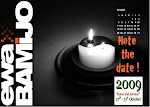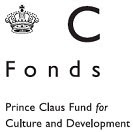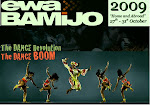We live in a world devoid of varieties in expressive forms. A world where there is so much to express, but  the only way to communicate our reflection and express our views, feelings, ideas and emotion, has been limited to either oral or literary means. However, the human mind often takes us to a conceptual and complex realm, which we sometimes are unable to convey in words. So one thing I have realized as a dancer is that, the body has a whole lot of intelligence that is able to express multitude of meanings in just one move or pose. These make corporal expressions the most significant and widely understood language of all time.
the only way to communicate our reflection and express our views, feelings, ideas and emotion, has been limited to either oral or literary means. However, the human mind often takes us to a conceptual and complex realm, which we sometimes are unable to convey in words. So one thing I have realized as a dancer is that, the body has a whole lot of intelligence that is able to express multitude of meanings in just one move or pose. These make corporal expressions the most significant and widely understood language of all time.
 the only way to communicate our reflection and express our views, feelings, ideas and emotion, has been limited to either oral or literary means. However, the human mind often takes us to a conceptual and complex realm, which we sometimes are unable to convey in words. So one thing I have realized as a dancer is that, the body has a whole lot of intelligence that is able to express multitude of meanings in just one move or pose. These make corporal expressions the most significant and widely understood language of all time.
the only way to communicate our reflection and express our views, feelings, ideas and emotion, has been limited to either oral or literary means. However, the human mind often takes us to a conceptual and complex realm, which we sometimes are unable to convey in words. So one thing I have realized as a dancer is that, the body has a whole lot of intelligence that is able to express multitude of meanings in just one move or pose. These make corporal expressions the most significant and widely understood language of all time. I dance to fulfill a need and quench a thirst for life. To live is like fleeing from one question to the other, hell is coupled with good intention, suffering and joy, love and hatred, normal winds of life. I trust in my wings because my answers are floating in my wind.
I like what I dance because I dance what I like, I dance when I most feel it become indispensable for me to let out my personal frustration, I don't get personal on the public dance floor and neither am I a coward that will go seek a hand in marriage and run back for his parents to arrange the marriage rites.
I dance what I think, I think what I dance, my dance is exact and underlined with truth, backed with intelligence and wide open to criticism at both ends. It’s my truth; it’s not necessarily the truth. It’s my truth so I'll defend it. If you like, you hate me for it, if you like, you kill me for it, I'll however be remembered for the values I defended.
I know what I dance, I dance what I know, I know what affects our societies today is the absence of air where it smells real bad, I know that the oppressed like back doors and escape routes. I  know that nothing moves the oppressor than the naked truth. My dance stage has with time mutated into a space where I carefully chip in my thoughts and emotions. It’s an open gossip. It’s a private part that challenges the public arena.
know that nothing moves the oppressor than the naked truth. My dance stage has with time mutated into a space where I carefully chip in my thoughts and emotions. It’s an open gossip. It’s a private part that challenges the public arena.
 know that nothing moves the oppressor than the naked truth. My dance stage has with time mutated into a space where I carefully chip in my thoughts and emotions. It’s an open gossip. It’s a private part that challenges the public arena.
know that nothing moves the oppressor than the naked truth. My dance stage has with time mutated into a space where I carefully chip in my thoughts and emotions. It’s an open gossip. It’s a private part that challenges the public arena. I see myself pack a handful of sand amidst this endless desert and poured it all into the air, as small as my palms may seem, the sand still arrives at struggling with the bad odor in the atmosphere, and it rained down in dust particles. It touched everyone close to the space I occupy. Some smiled over it and took it all for fun but others dwelled over the dust as though they have no hands to dust away the dust.
If dance gestures can be weighed on a scale, mine weigh a ton, its velocity is speed over time, to every dance I dance, I leave room for an equal and opposite reaction from my audience. If you have issues with me, tell me, don't tell my friend, If you feel threatened by my version of the truth, get over it and let life pass through you, today it’s my stage, yesterday it was someone else's, so tomorrow life goes on, because I know change will never seize from being the only permanent element in life.
If we visualize our 4000 years human history per minute spent. If we scale this minutes spent in 4000 years, per good or bad human deeds. We'll realize how little impact our best or worst efforts have on the human existence and civilization.
...To live a fulfilled life is to dance what you feel
...only if you truthfully feel what you dance!









